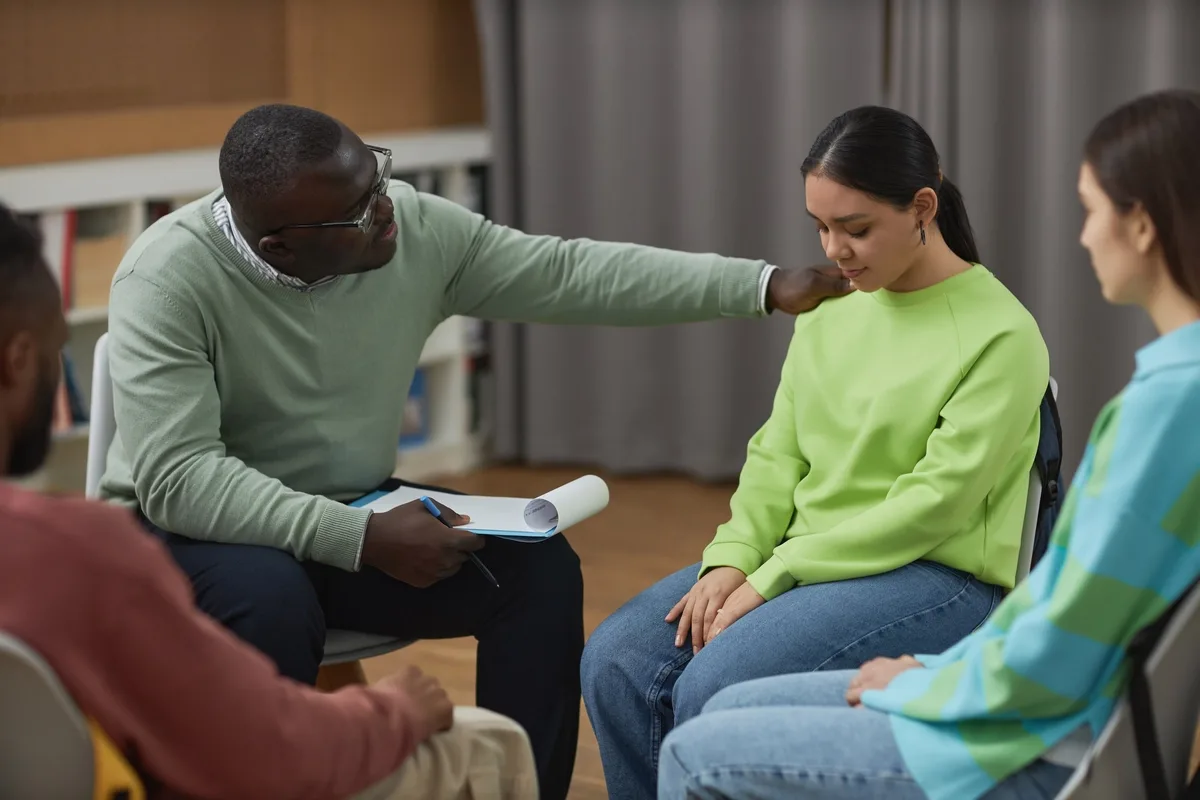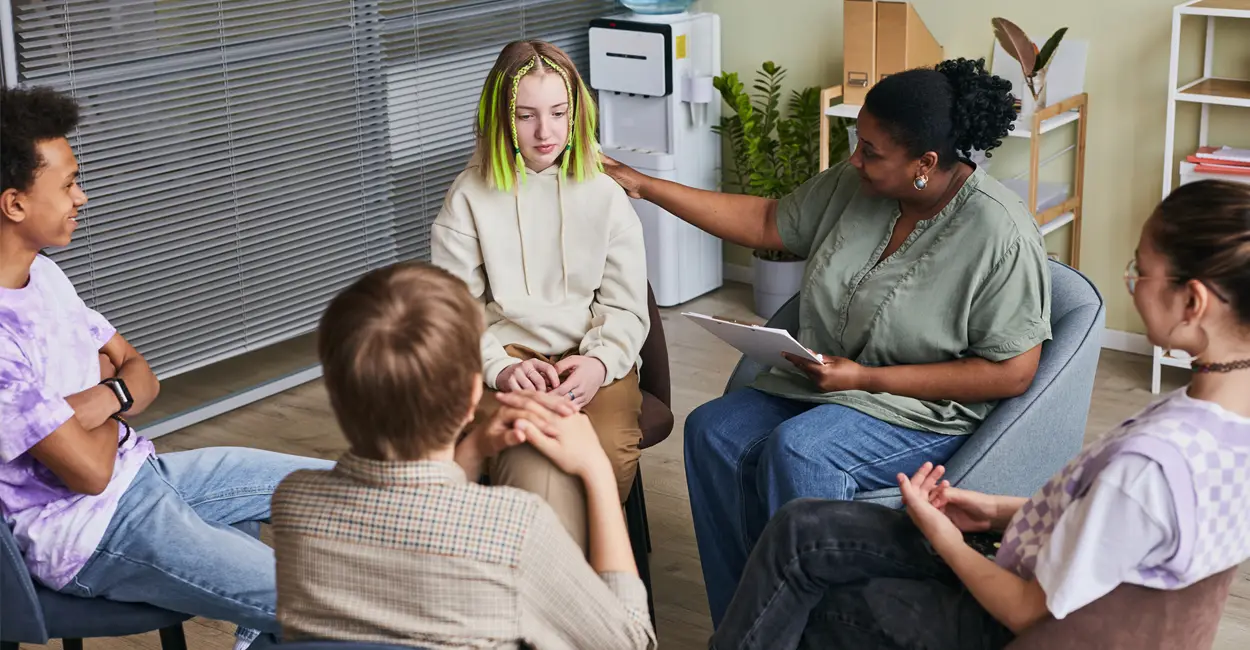24/7 Helpline:
(866) 899-221924/7 Helpline:
(866) 899-2219
Learn more about PTSD Treatment centers in Jordan
PTSD Treatment in Other Cities

Other Insurance Options

Aetna

ComPsych

Sliding scale payment assistance

State Farm

UMR

Medical Mutual of Ohio

Meritain

Holman Group

Ceridian

Ambetter

Cigna

UnitedHealth Group

Regence

Evernorth

MVP Healthcare

Anthem

WellPoint

Private insurance

BlueCross

Optum

Counseling and Recovery Services
Counseling and Recovery Services is a public rehab located in Sand Springs, Oklahoma. Counseling and...

Tulsa Boys Home
Tulsa Boys Home is a residential treatment facility for boys located in Sand Springs, OK. Tulsa Boys...

























































